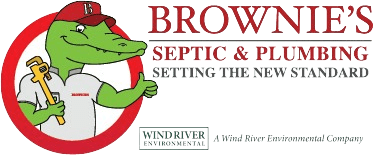Everything You Need to Know About Your Septic Tank
As a homeowner, it’s important to be informed about the different aspects of your house. For Florida families, septic tanks are the tool of choice for managing and treating waste (of which we humans produce a lot). Here are some of the most common questions we see about septic tanks.
How does a septic tank work?
Septic tanks are responsible for collecting waste and separating solids from liquids, which are typically dumped down the same drain. There is an exit pipe in each tank, where the fluids will leave and enter the drain field (more on that later).
The solids are left sitting in the tank, where they start to decompose. Bacteria is an important part of this process, as these microorganisms will initiate and carry out the decomposition of waste. Therefore, if you dump a lot of antibacterial materials down the drain, it could hinder their ability to break down waste. If waste continues to build up, it could cause a blockage or even enter the liquids-only drain field. You don’t need to cut out these types of products completely, but if you are frequently dumping bleach or other chemicals down the drain, you may want to rethink that waste strategy.
Is a septic tank the same as a sewer?
No, they are not the same. While they both look to achieve the same goal, they go about it very differently. A septic tank will be physically on your property and is the final location for the waste exiting your home.
With sewers, on the other hand, you’ll only have a main pipe that carries waste away from your home to a larger line, usually owned by a local municipality. Once the waste is collected, it reaches a sewer treatment plant and is decontaminated before being released into the environment.
How much maintenance does a septic tank require?
You should be on top of your septic system and make sure that it’s always functioning correctly. The most significant maintenance requirement is that you get your tank pumped every few years. This is the average, but it could vary depending on your use and how efficient your tank is.
To know exactly when your septic tank is ready to be pumped, pay attention to the signs, like foul odors coming from the drain, gurgling or slow draining, and standing water in your yard.
Where is my septic tank?
Every home is different, so each will have a different location for their tank depending on the yard layout, depth, property size, and more. The one thing all septic tanks have in common is they are underground. So if you’ve been staring in your yard wondering where it is, there’s your answer!
Where you place your tank is important, and a qualified septic specialist will be able to help you determine where it belongs on your property. The soil quality, land grade, and proximity to structures all have an impact on drainage.
What is a drain field?
Drain fields are crucial to a functioning septic tank. Also known as a leaching field, this part of the system is where liquids are treated to remove contaminants. This prevents harmful germs from entering the environment.
Can I work on a septic tank myself?
Unless you are a licensed plumber, we don’t recommend trying to dig up or repair your septic tank. It takes special machinery to pump a septic tank, and it is very dangerous to be digging around the tank’s location.
Similarly, septic gases can be toxic if inhaled in certain quantities. The combination of gases released by the septic decomposition process is usually harmless if drifting or sent up your drain. But up close, they can be more intense and can cause harm if inhaled. Leave the septic work to trained professionals.
Setting the New Standard for Septic Services
If you need a septic pump or want to know more about what you’re dealing with, call in the pros at Brownie's Septic and Plumbing, LLC at (407) 890-0116. Our team is highly qualified and can make sure your septic system is working perfectly.


.2103241149550.jpg)